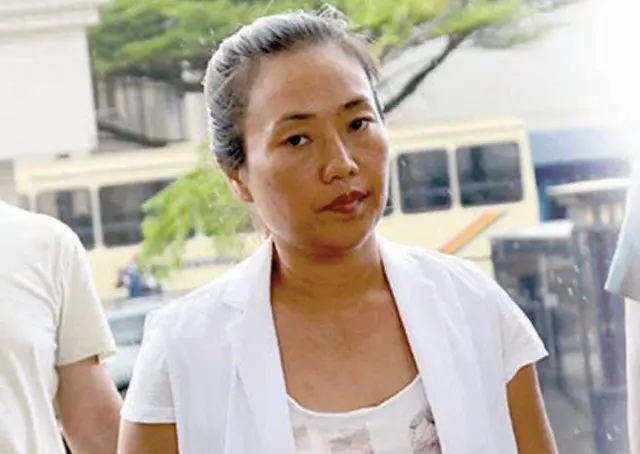In the last few weeks, we’ve been treated to cocktails of contradictions about the return of Chinese illegal miner, Aisha Huang. It tasted bitter.
Rather than allow the legal process to deal with her and her accomplices arrested in 2017, our leaders let them off the hook in the name of economic diplomacy.
I’m not xenophobic. But I dare say that the Chinese illegal miners are among the most emboldened foreigners acting with impunity in Ghana because our law enforcement does not find our prisons befitting their crimes.
Recent media reports suggest that there are only two Chinese nationals in Ghana’s prisons. Where did all those hundreds we arrested go? Were the arrests just for the cameras?
Didn’t the new mining law take away the discretion of judges to grant illegal miners bail? Why are we jailing Ghanaians who own the minerals and leaving foreigners who are plundering our resources to enrich their countries.
Chinese Ambassadors to Ghana have made it explicitly clear that they won’t condone the crimes of their countrymen here.
Whether those statements are diplomatic charades or sincere rhetoric shouldn’t even be a matter under discussion. Crimes have been committed; the culprits should be prosecuted.
How China deals with environmental crimes
Given China’s background of severe industrial pollution, which has forced their citizens in major industrial cities to wear masks, the country has some of the world’s most stringent environmental laws to safeguard their environment.
The punishments for an environment crime are harsh to deter potential perpetrators.
In August last year, a resident of Chinese industrial city Shanghai was fined $21,000 for trimming a tree in his backyard. This is a tree he bought and planted himself.
Shanghai city authorities told the man that he had violated greenery regulations by trimming the tree without obtaining a state approval.
Li, as the Chinese media referred to the man, was shocked by the punishment. He bought the camphor tree in 2002 and planted it in his own courtyard. However, he moved it outside his courtyard a few years later because it had grown too tall, blocking out sunshine. A few years later, the tree had grown even taller and Li pruned it again as it was also blocking out sunshine.
He cut down all the branches of the tree, only leaving the main tree trunk, which is over two metres high.
However, the Shanghai Morning Post reported that “Individuals have no right to transplant and cut trees on public green spaces without the approval of the related greening departments.”
Even worse, in November 2013, eight people, including management members and the legal representatives of a mining company, were convicted by a court in the country’s Yunnan Province for polluting the environment.
This was after local authorities found that the company had discharged wastewater containing xanthogenate into a water body – a toxic substance which can cause chronic damage to the liver and neurological system.
Although the waterbody in question was not a source for drinking water, it is used for farmland irrigation.
Read Also: Government’s education burden: Why private sector is antidote
Law
Under Chinese law, environmental crimes could even attract the death penalty.
During their operations in Ghana, the Chinese illegal miners and their Ghanaian conspirators commit worse crimes that threaten the future of this country.
They release some of the world’s most deadly chemicals –mercury and arsenic into the environment. These are chemicals that pose grave danger to even unborn children.
Yet, we let them go.
Yes, we deported Helen Huang who harvested and exported rosewood from northern Ghana. Perhaps, we didn’t, if the facts emerging from Aisha Huang’s tale of inconsistencies are anything to go by.
Numbers
It is no denying that the Chinese we set free are returning in their numbers to finish what they started with their Ghanaian collaborators. If Aisha Huang whose pictures were splashed all over the media in Ghana was bold enough to come back, what about the unknown ones? We only have to look at the colour of water bodies to realise that Aisha may not be the only expelled one to have returned.
Although we’ve burnt hundreds of havoc-wrecking chanfangs (a crude floating equipment for dredging rivers for gold) and excavators we are not close to eradicating a menace which has the possibility of plunging the country into a water and public health crisis in the near future.
It only means that the nation wreckers, some of whom we decided to pardon under the cloak of diplomacy, are back because we are too lenient to deal with them the way their own countries deal with those who threaten the environment.
How many of the Aisha Huangs and Helen Huangs are back in Ghana to continue with their footprints of environmental destructions while we jail our own?
By: Dr Paul Fynn
The writer is Founder/Chancellor of the Wisconsin International University College/immediate past President-General of the West Africa Nobles Forum.
Ghana| Atinkaonline.com


























